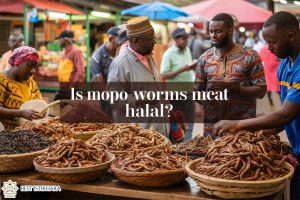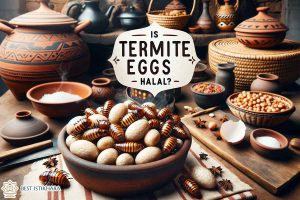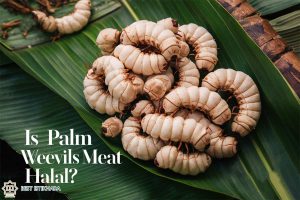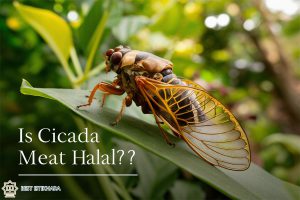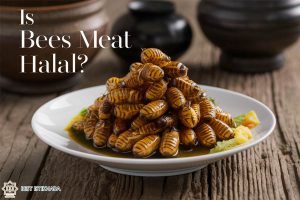Is Ant's Meat Halal?
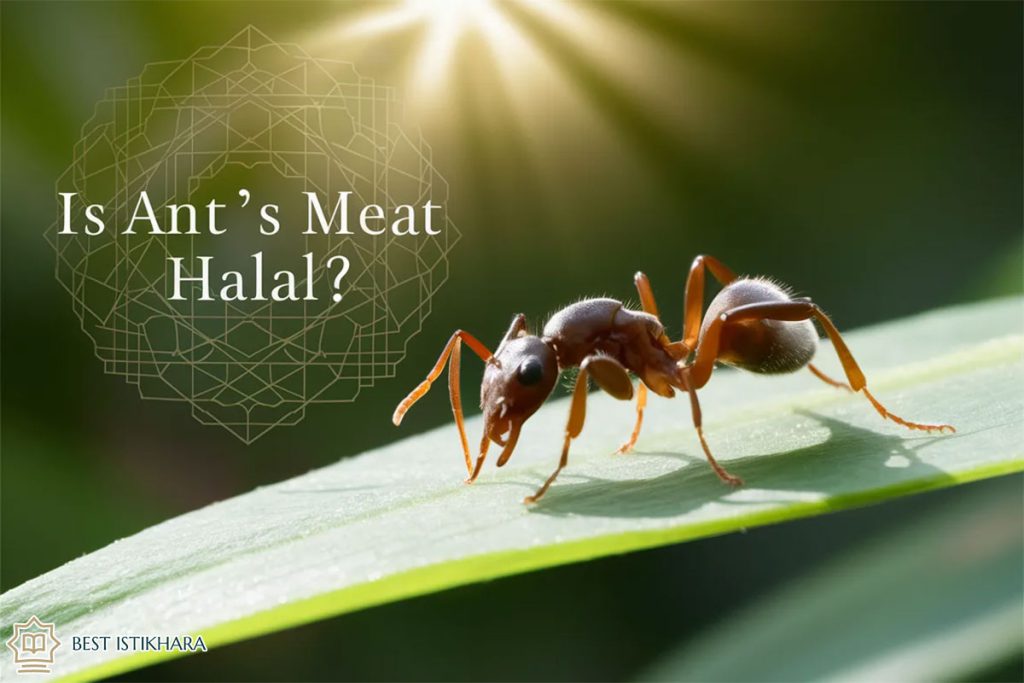
Halal, an Arabic “permissible” term, is fundamental in Islamic dietary laws. These laws dictate what foods and drinks are allowed for consumption by Muslims. The guidelines are derived from the Quran, the Hadith (the sayings and actions of Prophet Muhammad), and the consensus of Islamic scholars. Central to these laws is the prohibition of consuming certain items, such as pork and alcohol, and the requirement for animals to be slaughtered in a specific manner. These rules ensure the food is pure, clean, and prepared in a way that aligns with Islamic ethical and moral standards. Understanding these principles is crucial when exploring the halal status of unconventional foods, such as insects, including ants. Click to get more information about halal vs haram topics discussed in today’s world.
Are Ants Halal? Scholarly Opinions
Scholars debate the permissibility of consuming ants in Islam. Islamic dietary laws, derived from the Quran and Hadith, generally prohibit the consumption of insects. However, there are exceptions. According to the Maliki school of thought, insects without flowing blood, such as ants, are considered halal if appropriately prepared. They draw an analogy to locusts explicitly permitted in Islamic texts.
Conversely, other significant schools of thought, like the Hanafi, Shafi’i, and Hanbali, generally classify ants as haram due to their classification as vermin and the lack of explicit textual evidence allowing their consumption. Scholars from these schools argue that insects do not meet the lawful slaughter and purity criteria.
Therefore, the consumption of ants largely depends on one’s school of thought, with a notable split between the Maliki position and the more conservative views of other Islamic jurisprudence schools.
Case Studies: Ant Consumption in Muslim-Majority Countries
In various Muslim-majority countries, the consumption of ants and other insects is influenced by local customs, availability, and religious interpretations. In Southeast Asia, countries like Indonesia and Malaysia have traditional practices that include eating ants, particularly weaver ants, which are known for their high protein content. Here, Islamic scholars often debate their permissibility, with some local fatwas allowing their consumption based on necessity and nutritional benefits.
In contrast, the Middle East sees limited consumption of ants, primarily due to stricter interpretations of halal laws by scholars in these regions. For instance, the predominant opinion in Saudi Arabia and Egypt aligns with the Hanafi and Shafi’i schools, which generally prohibit insects, including ants.
In North African countries like Morocco, traditional diets sometimes include insects. More prevalent in this region, the Maliki school allows certain insects, including ants, to be halal if considered clean and beneficial.
These case studies illustrate the diversity in dietary practices and religious rulings regarding the consumption of ants in Muslim-majority countries.
Nutritional and Health Aspects of Eating Ants
Ants are increasingly recognized for their nutritional benefits, offering a sustainable and protein-rich food source. They are high in protein; some species contain up to 42% protein by dry weight. This protein is of high biological value, containing essential amino acids for human health.
Additionally, ants are rich in essential minerals such as iron, zinc, magnesium, and potassium. Iron is crucial for preventing anemia, while zinc supports immune function. Magnesium plays a role in muscle and nerve function, and potassium is vital for maintaining healthy blood pressure levels.
Ants also provide beneficial fats, including polyunsaturated fatty acids, contributing to cardiovascular health. Their antioxidant properties help reduce oxidative stress, potentially lowering the risk of chronic diseases.
Moreover, consuming ants can support gut health because their prebiotic fibers promote a healthy microbiome. This can enhance digestion and nutrient absorption, contributing to overall well-being.
Given these nutritional advantages, ants represent a valuable addition to the diet, especially in regions where traditional protein sources are scarce.
Halal Certification and Food Safety for Insect-Based Foods
Halal certification for insect-based foods, including ants, involves stringent scrutiny to ensure compliance with Islamic dietary laws. Certification bodies assess whether the insects are free from impurities and processed in a manner consistent with halal principles. This includes ensuring that the insects are not contaminated with haram substances during farming, harvesting, and processing.
The process begins with a thorough examination of the farming practices. Insect farms must avoid using feed or haram substances like blood or swine by-products. The insects must be handled cleanly during processing, with all utensils and equipment free from contamination by non-halal items.
Food safety is another critical aspect. Insect-based foods must adhere to general food safety standards, including proper hygiene and storage conditions to prevent contamination and spoilage. Regular inspections and testing are conducted to ensure these standards are met. Additionally, adequate labeling is required to inform consumers about the halal status and ingredients.
Ensuring halal certification and robust food safety measures gives Muslim consumers confidence in the purity and ethical integrity of insect-based foods, which align with religious guidelines and health standards.
Conclusion
In conclusion, determining the halal status of ants varies among Islamic scholars, with the Maliki school generally permitting them while others may not. Ants offer nutritional benefits, including high protein and essential minerals, making them a valuable food source. Cultural practices in Muslim-majority countries influence their consumption, reflecting a blend of religious and local traditions. Halal certification and food safety measures ensure that insect-based foods meet rigorous standards, assuring consumers. This multifaceted discussion highlights the intersection of tradition, science, and modern dietary practices in evaluating the halal status of ants.

